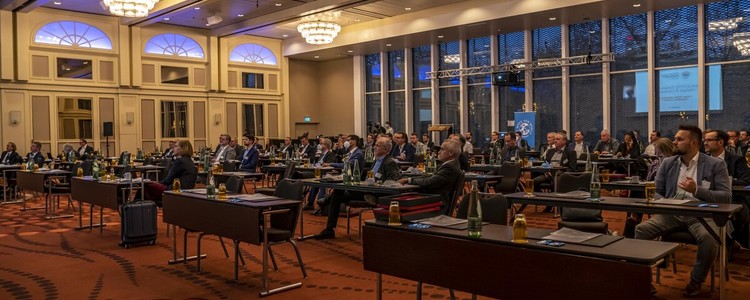Markets, liquidity problems in the automotive supply chain, and increasing regulation – these mixed and volatile developments were the focus of this year's fall conference of the Wirtschaftsverbands der deutschen Kautschukindustrie (wdk, German Rubber Industry Association) in Frankfurt am Main on 18 November 2021. In view of the many challenges, wdk President Anish K. Taneja emphasized the strength of the industry. He added that the German rubber industry will succeed in mastering them and actively shaping a recovery after the Corona crisis. "No industrial sector in the world can manage without rubber as a material. Practically nothing moves without us. The particular strength of our industry lies in the fact that it resembles this unique material: it is flexible and built on a stable network." According to wdk President, Anish K. Taneja, "The rubber industry will build on this and master the challenges in close dialog with its network partners. Silke Glasewald, Vice President of the wdk, spoke to the 200 or so participants at the fall conference, which was held hybrid for the first time, of a turning point with the industry facing several turnarounds at once, concerning climate, mobility and energy. “Our industry must not only accompany this dynamic change with its economic and technical expertise, but also help to model it sustainably", she said and pointed to the many sustainability projects being undertaken by large and small industry companies and the association. "Together, we can advance our sustainable concepts and thus underline our systemic relevance for Germany as a business location." In her presentation "Pull out the stops", Nicola Beer (FDP), Vice President of the European Parliament, spoke of a "backlog of reform in Germany" and campaigned for it to be overcome. "We need to decarbonize, but at the same time make sure that energy-intensive industries don't leave our continent." She advocated a "Mittelstandstest" for new EU rules in the future, to ensure they can be implemented by small and mid-sized enterprises. Anything that the latter could not implement administratively should not become law, she said. At the same time, competitiveness must be improved by completing the internal market, the FDP politician said. The creation of an internal European energy market with affordable energy for citizens and the economy is necessary. Wdk’s chief economist, Michael Berthel, analyzed the market for rubber raw materials and the economic situation. According to the report, industry sales in the first three quarters were around 16 % higher than in 2020. By contrast, he said, there was a clear divide in the fourth quarter: While the non-automotive sector is humming along, automotive suppliers are seeing a drop in demand towards the end of the year. Both sales and production reflect the dramatic drop in call-offs from vehicle manufacturers. According to Berthel, the core cause of this is the fragile procurement market. The supply chains are strained to breaking point and there is no relief in sight. The strained logistics chain is also having an impact on raw material supplies. The result is exorbitant price increases for all industrial raw materials. All materials – rubbers, fillers, chemicals, metals – are affected, with price increases consistently in the high double-digit percentage range and, for example, almost double for SBR. For the year as a whole, Berthel expects sales to increase by only around 3 %.
